Current Scholars Bios
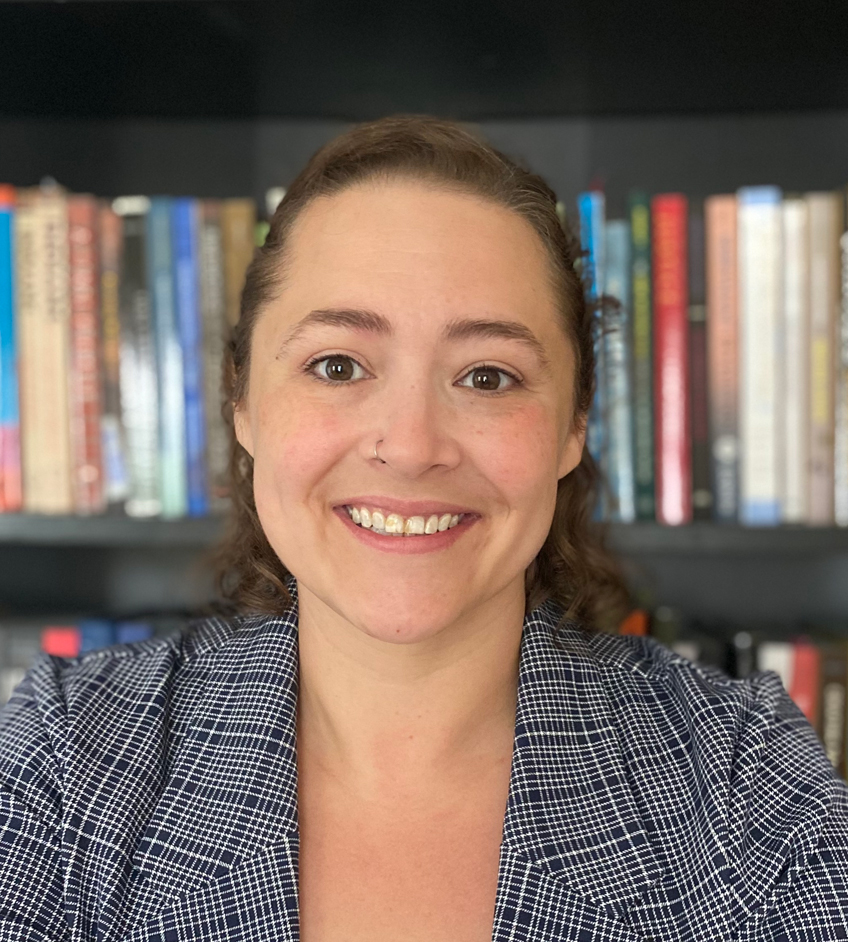
Raquel Escobar, 2022-2024
History
RAQUEL ESCOBAR — Raquel earned her Ph.D. in History with a graduate minor in American Indian and Indigenous studies from the University of Illinois, Urbana-Champaign in 2020. Escobar grew up in the Southwest and received her B.A. is American Studies from the University of Texas at San Antonio. She is an interdisciplinary scholar whose research areas include race and Indigeneity, colonialism and empire, as well as political and intellectual history.
Escobar is joining the Department of History as a Carolina Postdoc where she will work on her book manuscript tentatively titled, Indigenous Diplomacies: Negotiating and Mapping Indigeneity in the Americas. Indigenous Diplomacies documents transnational Indigenous political and intellectual networks that blossomed across the Americas during the twentieth century–many actively responding to state attempts to incorporate and transform Indigenous populations. By mapping these exchanges and centering Indigenous perspectives from a range of positionalities, the book manuscript shows how racial frameworks and constructions of Indigeneity were relationally developed in the Americas during the twentieth century. Prior to joining the University of North Carolina at Chapel Hill, Escobar was a Mellon/ACLS Public Fellow for the Humanities Action Lab (HAL) at Rutgers University- Newark (2020-22). During her tenure she oversaw HAL’s COVID-19 Mass Listening project and a new Mellon funded fellowship program, which aims to foster leadership from Minority Serving Institutions and frontline communities to use public humanities for climate justice.
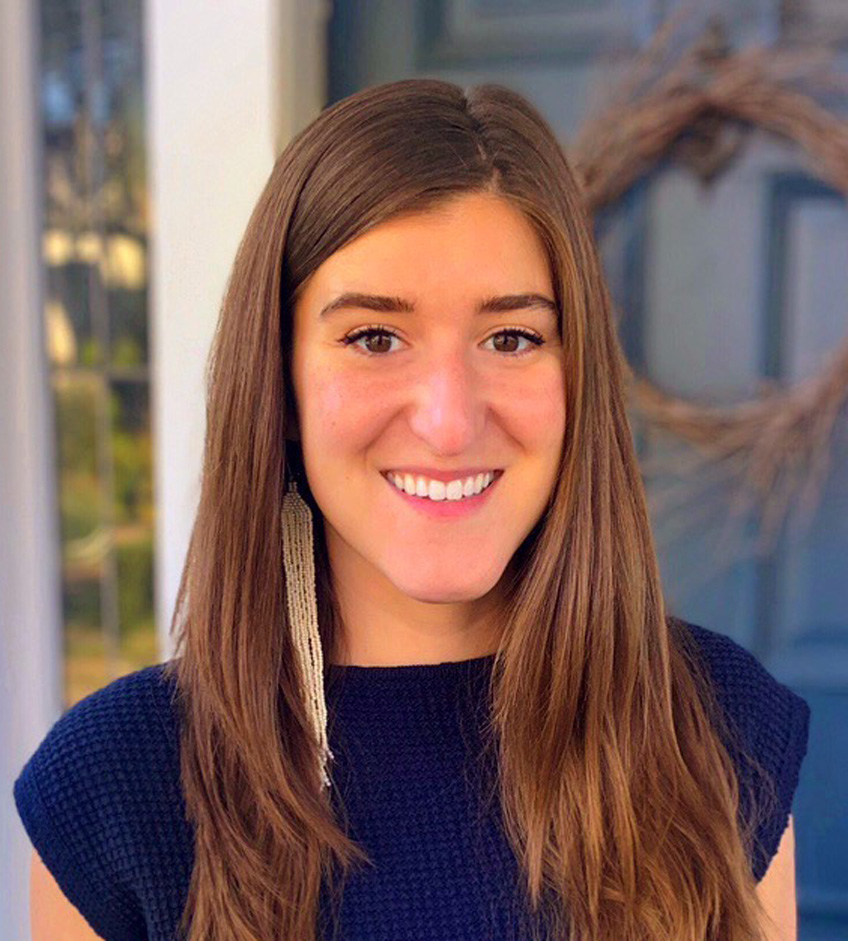
Anna Fetter, 2022-2024
Psychology and Neuroscience
ANNA KAWENNISON FETTER — Anna received her degree in Counseling Psychology from the University of Wisconsin – Madison and received a Master’s in Education in Human Development and Psychology from Harvard University. Dr. Fetter completed her doctoral internship at the University at Albany’s Counseling and Psychological Services. Dr. Fetter is a first-year postdoctoral fellow in the Carolina Postdoctoral Program for Faculty Diversity. Through an interdisciplinary lens, Dr. Fetter is broadly interested in the development of resiliency among marginalized youth and emerging adults. Dr. Fetter’s research focuses how culturally relevant and identity-based stressors and coping strategies at multiple levels contribute to the longitudinal development of resilience among Indigenous youth and emerging adults, with a particular focus on educational contexts. In partnership with community stakeholders, Dr. Fetter aims to ultimately inform educational policy and practice to best support Indigenous youth resilience.
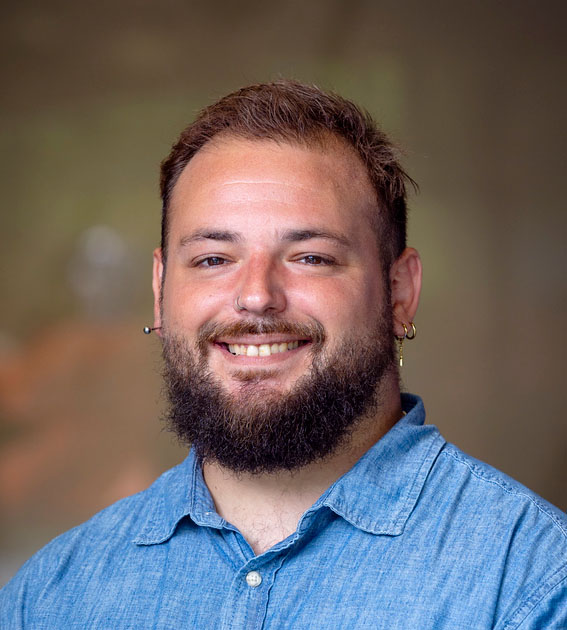
Antonio Florido, 2023-2025
Psychiatry
ANTONIO FLORIDO — Antonio is a dedicated scholar and researcher in the field of neuroscience, specializing in the intricate relationship between the brain, behavior, and mental health. He commenced his academic journey by earning a degree in psychology from the University of Almeria in Spain, where he developed a profound interest in the workings of human behavior.
Antonio’s commitment to academic excellence propelled him to pursue a Master’s degree in Research in Mental Health, with a distinctive concentration in psychopharmacology. His academic pursuit led him to the vibrant city of Barcelona, where he played a pivotal role in the establishment of an innovative animal surgery unit for the Institute of Neuroscience at the Autonomous University of Barcelona. During his tenure in Barcelona, Antonio embarked on a transformative academic voyage, enrolling in a Ph.D. program in neuroscience. His groundbreaking research explored the complex realm of sex differences in fear memory formation, significantly advancing our understanding of cognitive processes.
Antonio’s scholarly contributions have left an indelible mark on the scientific community, with his work published in prestigious journals such as Nature Communications, Biological Psychiatry, and Biology of Sex Differences. In recognition of his outstanding achievements, he successfully obtained his Ph.D. in July 2022, marking a significant milestone in his academic journey.
He embarked on a new chapter by participating in the esteemed CPPFD program. His pursuit of excellence in the field of neuroscience culminated in his being awarded the prestigious Marie Sklodowska-Curie Postdoctoral Global Fellowship. Combining the CPPFD and Sklodowska-Curie fellowships, he aspires to unravel the intricate neural mechanisms underlying disrupted arousal in depression, with a particular emphasis on neuroendocrinology and sex differences.
Beyond his academic pursuits, Antonio possesses a deep-seated passion for music, finding solace and joy in playing the piano. He is an ardent advocate for animal welfare and aspires to establish a dog shelter to provide a sanctuary for our four-legged companions. His love for reading thrillers offers a glimpse into his fascination with unraveling mysteries, both in literature and in the complex world of neuroscience. Antonio is not only a dedicated scientist but also a passionate advocate for LGBT rights. He believes in the power of visibility and the importance of creating opportunities for all. As he continues to forge his path in the world of academia, his aspiration is to become a professor and establish his own laboratory dedicated to exploring the neuroendocrinology of mood disorders, a field of knowledge with profound implications for mental health and well-being.
In every endeavor, Antonio embodies a relentless pursuit of knowledge, a commitment to compassion, and an unwavering dedication to making a meaningful impact on the world of neuroscience and beyond.
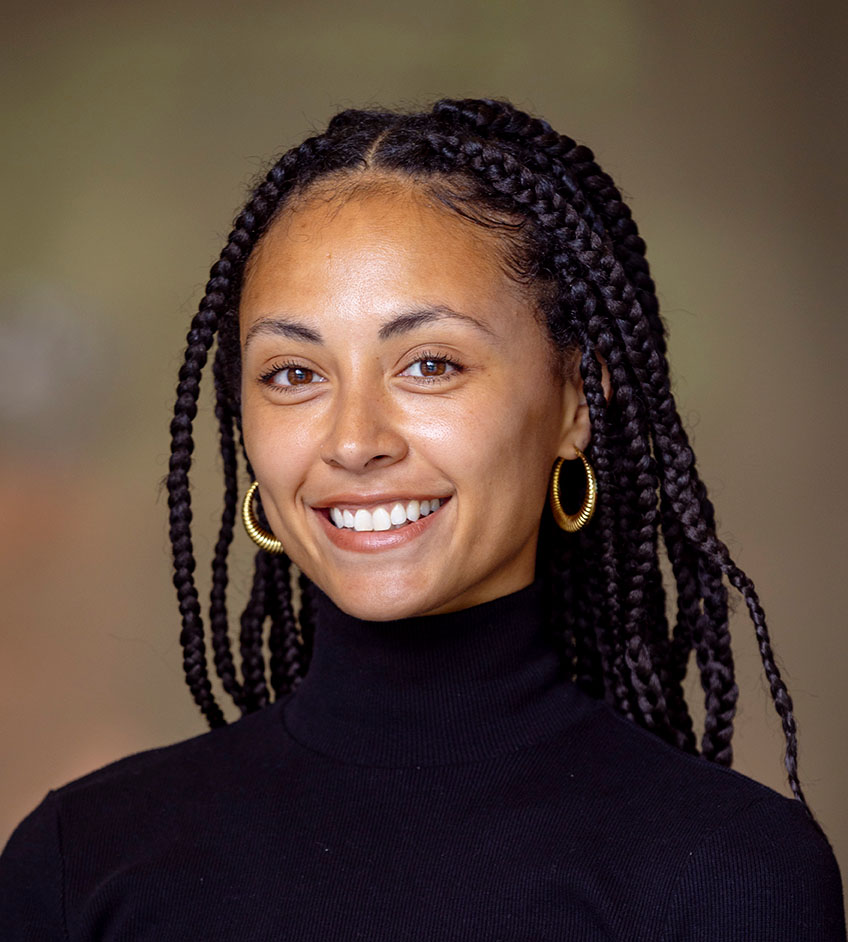
Kaneesha Johnson, 2023-2025
Political Science
KANEESHA JOHNSON — Kaneesha’s research lies at the intersection of public policy, the criminal legal system, and historical institutionalism within the field of American politics. Broadly, her works surrounds questions of inequality in punishment systems and focuses on the ways in which the state designs systems of punishment as a form of social control and how people who are subjected to those forms of control respond at the local level. She is coauthor of Deadly Justice: A Statistical Portrait of the Death Penalty, and other works exploring inequalities identified in the criminal legal system.
Prior to joining the CPPFD, Kaneesha grew up in the United Kingdom and after moving to the United States earned her B.A. in Political Science from UNC-Chapel Hill, her Master in Legal Studies from the University of Chicago Law School, and her Ph.D. in Government from Harvard University.
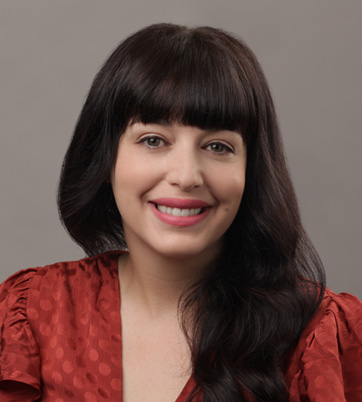
Amanda Martinez, 2023-2025
American Studies
AMANDA MARTINEZ — Amanda Marie Martínez is a historian interested in the intersection of racial capitalism and popular culture. She begins her fellowship at Carolina after completing a postdoctoral fellowship at the James Weldon Johnson Institute for the Study of Race and Difference at Emory University. A native of Santa Cruz, California, she received her BA in History at the University of California, Berkeley, and a PhD in History at the University of California, Los Angeles.
Martínez’s writing has appeared in California History, where it received the Richard J. Orsi prize for the best article published in that journal in 2021, and the Journal of Popular Studies. She is an active public scholar, having published on issues of race/ethnicity and popular music in the Los Angeles Times, Washington Post, and NPR, and has also worked on and appeared in documentaries including Netflix’s Explained episode on country music, and Amazon’s For Love and Country: Country Music Has Always Been Black Music.
Her book project, The Industry is Playing the People Cheap: Race and the Country Music Business From Nixon to 9/11, reframes the country music genre as the product of Black and Brown artists and listeners, and reveals how the music industry disregarded the music’s multiracial and multiethnic roots and embraced a politics of white conservatism. During the final decades of the twentieth century, this work reveals how the music industry branded country as the sound of wholesome, family-friendly white conservatism.
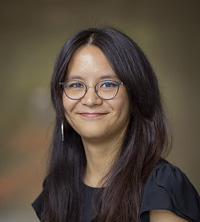
Sarah Parijs, 2023-2025
English and Comparative Literature
SARAH LEILANI PARIJS — Sarah received her Ph.D. in English with a minor in Literature and Science from Indiana University Bloomington in 2023 and M.A. in English from the University of Texas at Arlington. Sarah is an interdisciplinary literature and environmental humanities studies scholar who specializes in nineteenth-century American nature writing and postmodern science fiction. Her research blends humanities and scientific fields to trace the histories of ideas and underlying sociocultural influences associated with nature, race, and science.
Sarah is joining the Department of English & Comparative Literature as a Postdoctoral Research Associate through the Carolina Postdoctoral Program for Faculty Diversity, where she will work on a book manuscript tentatively titled, Allegories of Decay in Gaia: Writing an Interconnected Worlds of Parts in American Nature Writing and Science Fiction. Allegories of Decay in Gaia uses an ecocritical postcolonial approach to Gaia theory, the hypothesis that the Earth is alive and interconnected. The manuscript demonstrates how the long colonial history of the allegorical figure of Gaia seen in nineteenth-century texts and contemporary science fiction ambiguously theorizes ways of thinking about the planet. Her study argues that the intertwined histories of settler colonialism and ecological science mean we can only get so far in understanding the planet as an interconnected whole without an account of race and racialization. By mapping continuities in nineteenth-century literature and science fiction in the context of climate collapse, the book manuscript shows the need to account for environmental decay and histories of racialization in planetary thinking.
Sarah’s long-term career goals are to continue in academia as a researcher and teacher of American literature and science, ecocriticism, and race studies.
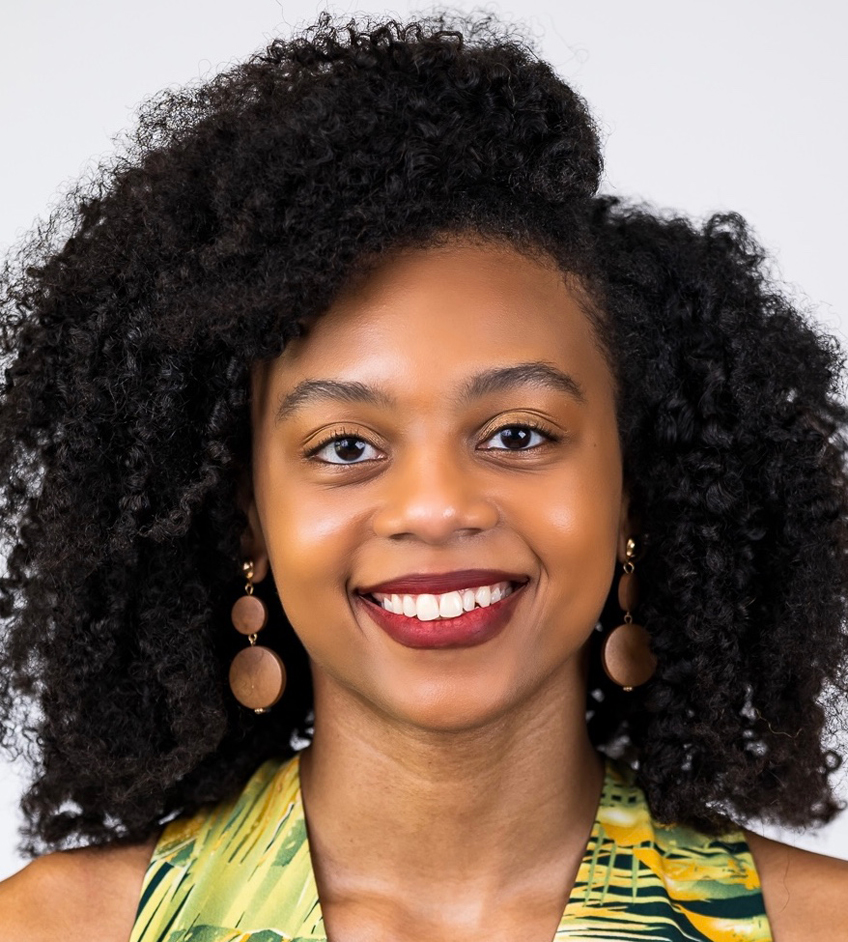
Millicent Robinson, 2022-2024
School of Social Work
MILLICENT ROBINSON — Millicent N. Robinson is an interdisciplinary scholar, consultant, and certified practitioner of Reiki Therapy, which is an evidence-based practice used to reduce stress and promote healing and well-being. Her research centers the stress, coping, health, and healing experiences of Black women. She earned her PhD in Community Health Sciences from the Jonathan and Karin Fielding School of Public Health at UCLA, where she minored in Sociology. Millicent is also a “Triple Tar Heel”, having earned her B.A. in Psychology from UNC-Chapel Hill, her MSW from the UNC School of Social Work, and MPH from the Gillings School of Global Public Health. She has returned to the UNC School of Social Work as a Postdoctoral Fellow through the Carolina Postdoctoral Program for Faculty Diversity.
Overall, Millicent’s program of research investigates the life course biopsychosocial mechanisms that distinguish mental and physical health risk among Black women. To address this, her research agenda integrates theories and perspectives from Social Work, Public Health, African, African American, and Diaspora Studies, and Medical Sociology to address four key issues: (1) interconnections between mental and physical health, (2) culturally-relevant forms of coping, (3) complementary and alternative medicine, and (4) ethnic heterogeneity among Black women.
Millicent’s long-term career goal is to be a scholar and practitioner whose research provides a comprehensive framework that identifies the pathways through which social stress exposure, coping, and healing processes shape health among ethnically diverse Black women. Her trajectory as a scholar has been profoundly shaped and enriched through training and opportunities with the UNC Center for Health Equity Research, Community-Campus Partnerships for Health, and the UCLA Center for the Study of Racism, Social Justice, & Health.
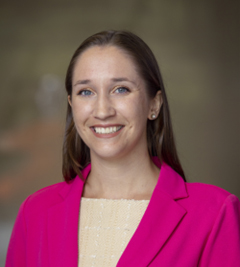
Rebeca Stiepel, 2023-2025
Eshelman School of Pharmacy
REBECA STIEPEL— Rebeca earned her PhD in Pharmaceutical Sciences from the University of North Carolina Eshelman School of Pharmacy (UNC ESOP) Division of Pharmacoengineering and Molecular Pharmaceutics. Prior, she completed her BS in Chemical Engineering and BA in Interdisciplinary Studies at the University of Southern California. In 2023, Rebeca joined the UNC ESOP Division of Pharmacotherapy and Experimental Therapeutics as a Postdoctoral Research Associate in the Carolina Postdoctoral Program for Faculty Diversity. Her research interests include evaluating the role of different cell types in the progression of drug resistant epilepsy caused by malformations of cortical development. She is also interested in leveraging the immune system to combat neurological disorders and applying drug delivery techniques to target cells and tissues of interest while minimizing negative off target effects.
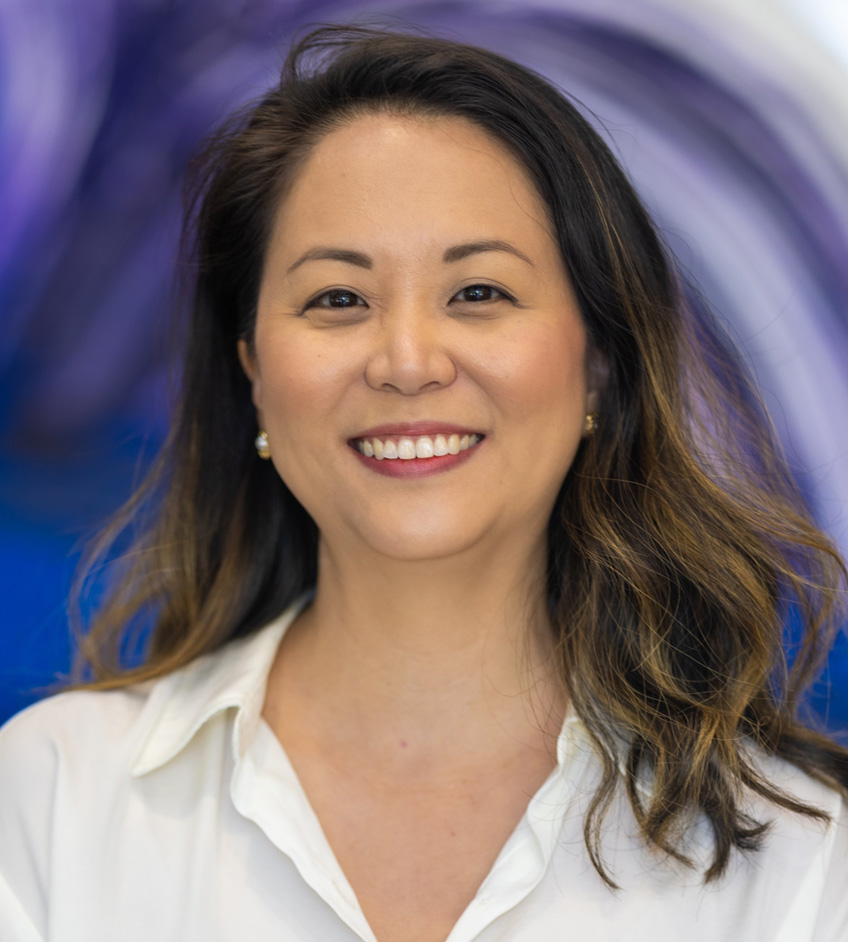
Julia Yi, 2022-2024
Allied Health Sciences
JULIA YI — Julia earned her Ph.D. in Speech and Hearing Sciences at the University of North Carolina at Chapel Hill, her M.S. in Speech-Language Pathology at Teachers College, Columbia University, and her B.S. in Teaching Students with Speech and Language Disabilities at New York University. Prior to entering the Ph.D. program, she worked as a speech-language pathologist for a decade. Her research interests are guided by her direct work with children and adolescents in urban schools in New York City and Los Angeles and in her private practice that focused on working with families of children with language-based learning disabilities.
Julia’s research focuses on language and literacy, especially as it relates to issues concerning disability, poverty, and race. During her fellowship, she plans on developing targeted literacy interventions for adolescents with high risk factors, such as those in the juvenile justice or foster care system.
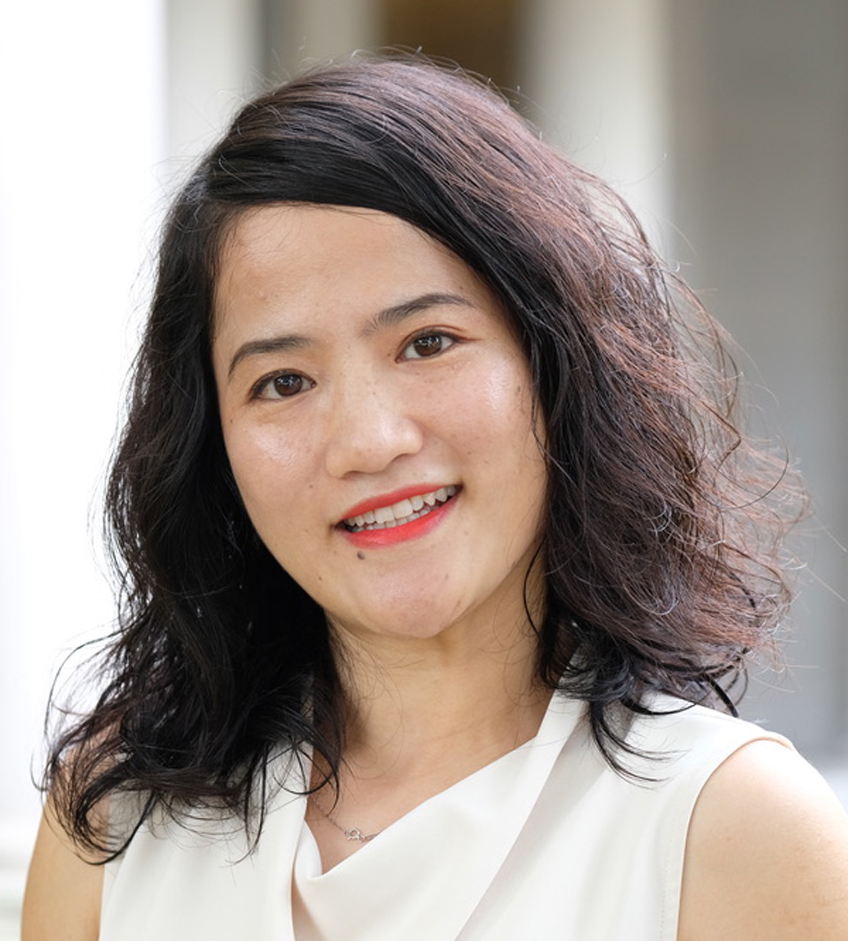
Ling Zhang, 2022-2024
School of Education
LING ZHANG — Ling received her doctoral degree in special education with a focus on Instructional Design, Technology, and Innovation (IDTI) from the University of Kansas (KU). Prior to joining the UNC-Chapel Hill, she worked as an associate researcher at the Center for Research on Learning and Center for Innovation, Design, and Digital Learning at KU.
Ling’s research primarily focuses on designing, implementing, and evaluating technology-enhanced personalized learning (PL) for students with and without disabilities in diverse educational settings. She takes an interdisciplinary approach to investigating the design of PL that is grounded in inclusive instructional design frameworks (e.g., the Universal Design for Learning framework) and learning theories (e.g., Self-Regulated Learning). Currently, she is collaborating with colleagues to investigates the design and development of digital tools (e.g., measurement tools, AI-driven conversational agents) that have the potential to facilitate PL experiences for students with and without disabilities. In addition, Ling’s research explores effective ways to improve educators’ capacity to integrate emerging technologies and innovative pedagogies in implementing PL. To achieve these goals, she works with researchers across disciplines from universities, non-profit educational organizations, and industry to promote accessible, inclusive, and innovative learning experiences for all learners.